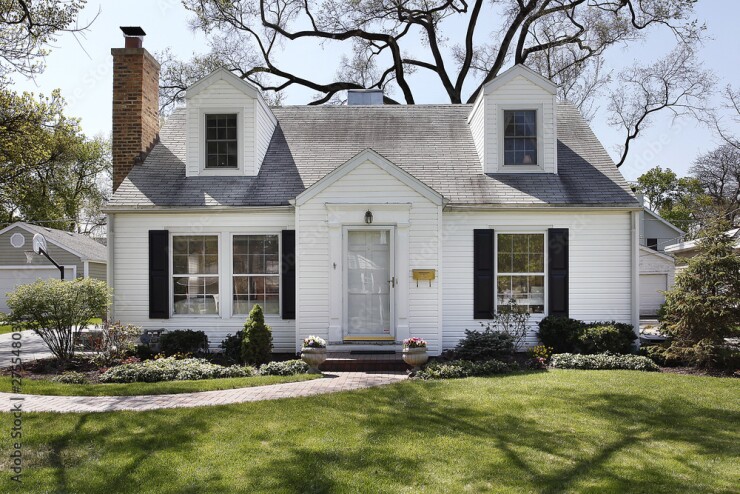With U.S. house prices off their June 2022 peak and a recession looming, RMBS investors and underwriters have tightened their policies, while searching for value in a changing market.
According to Fitch Ratings' latest U.S. RMBS Sustainable Home Price report, citing Q1 data, home prices in 88% of the country's metropolitan statistical areas (MSAs) are overvalued. Residential markets might be normalizing, according to Fitch's findings. Over half (52%) of MSAs are more than 10% overvalued, down from 62% in Q3 2022, following a 2.1% decline in home prices in 72% of the top 100 MSAs by population in Q4 2022, the report said.
Historically low inventory, especially borrowers' reluctance to sell their homes and abandon low-interest mortgages, is putting slack in housing prices. Additionally, mortgage delinquencies have been low, a situation that could change depending on the severity of the recession that is expected by the end of 2023.

Aside from mild rating pressure at the bottom of the capital structure, Fitch does not have many RMBS transactions on rating watch negative or outlook negative, nor does it expect to downgrade a significant number of RMBS deals imminently, said Kevin Kendra, a managing director at Fitch who leads the rating agency's U.S. RMBS group.
Any RMBS issued before 2022 has benefited from significant home price growth, increased equity, and prepayments, which were particularly high in 2021, Kendra said.
The progress since 2022 has come with its own set of particular drawbacks, however, starting with the fact that the vintage from that year hasn't had a lot of equity growth, Kendra said. Combined with house price drops and the economic outlook, investors are beginning to tighten credit.
"We've actually tightened our credit standards several times since the beginning of 2022. About 20% of the loans that we were doing in 2022, would no longer be eligible for our correspondent channel," said Mike Fania, deputy CIO and head of residential credit at Annaly Capital Management. Fania, who is also CEO of Onslow Bay Financial subsidiary, which aggregates mortgages for RMBS deals, added that the company prioritizes assets with a 745 FICO, and a 69% loan-to-value ratio.
Onslow Bay Financial's
"We still think that there are good borrowers out there and good credit to underwrite, but we've been cautious about the type of loans that we've been aggregating at this point," said Fania.
Annaly has also become more conservative in selecting RMBS from other issuers for its mortgage REIT.
"From our peers we'll buy investment grade shelves, rated BBB, whereas in the past we would have bought BB or B," Fania said.
Similarly, Pimco is focusing on investing in AAA non-agency RMBS 2.0, because of its high level of collateralization, said Mike Cudzil, managing director and generalist portfolio manager at Pimco. "We find the legacy market quite attractive. It's as deleveraged as it has ever been and has low exposure to house prices," he said.
As for agency mortgages, Cudzil added, they have some of the most attractive valuations Pimco has seen apart from in the 2008 financial crisis and during the COVID-19 period.
"The technicals are negative," Cudzil said. "The FDIC has $100 billion of securities [from Silicon Valley Bank] that they need to divest and the Fed is running off its balance sheet. Additionally, higher cost of capital, elevated deposit costs and the potential for increased regulation likely mean banks will participate less in securities markets for now, which creates an opportunity for value investors." The secondary market is reflecting the value to be found in RMBS.
"Lower-grade older securities are also doing well because investors have been chasing the lowest grade for better returns, betting on an end to interest rate hikes, and expecting a slowdown, not crash, of the housing market," said Tracy Chen, portfolio manager at Brandywine Global Investment Management. "RMBS have been trading very well, delinquencies have been very benign, and investor concerns about the CMBS market have led them to transfer funds from CMBS."
Chen doesn't quite agree that the U.S. housing market is overvalued, citing the inability of new home construction to meet demand and the closeness of rents to mortgage costs.
"Although spreads have widened slightly in the secondary RMBS market along with other parts of the risk sector, the magnitude is small and has been stable year to date," Chen said. "The average RMBS return ranges from 3% to 4.5% year to date, so it's equivalent to high yield. RMBS prices have fallen by maybe one percentage point, and, with the coupon, the total return is still positive."





